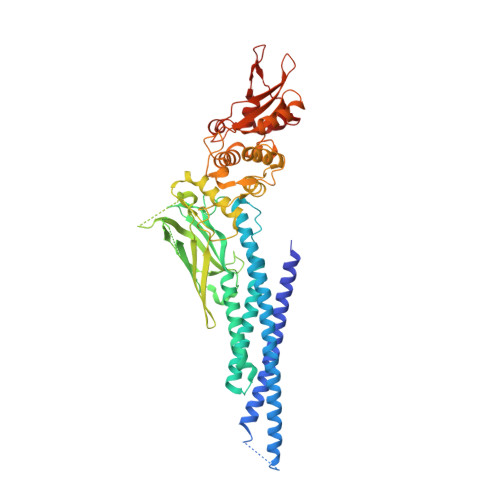A Potent and Selective Small-Molecule Degrader of STAT3 Achieves Complete Tumor Regression In Vivo.
Bai, L., Zhou, H., Xu, R., Zhao, Y., Chinnaswamy, K., McEachern, D., Chen, J., Yang, C.Y., Liu, Z., Wang, M., Liu, L., Jiang, H., Wen, B., Kumar, P., Meagher, J.L., Sun, D., Stuckey, J.A., Wang, S.(2019) Cancer Cell 36: 498-511.e17
- PubMed: 31715132
- DOI: https://doi.org/10.1016/j.ccell.2019.10.002
- Primary Citation of Related Structures:
6NJS, 6NUQ - PubMed Abstract:
Signal transducer and activator of transcription 3 (STAT3) is an attractive cancer therapeutic target. Here we report the discovery of SD-36, a small-molecule degrader of STAT3. SD-36 potently induces the degradation of STAT3 protein in vitro and in vivo and demonstrates high selectivity over other STAT members. Induced degradation of STAT3 results in a strong suppression of its transcription network in leukemia and lymphoma cells. SD-36 inhibits the growth of a subset of acute myeloid leukemia and anaplastic large-cell lymphoma cell lines by inducing cell-cycle arrest and/or apoptosis. SD-36 achieves complete and long-lasting tumor regression in multiple xenograft mouse models at well-tolerated dose schedules. Degradation of STAT3 protein, therefore, is a promising cancer therapeutic strategy.
- Rogel Cancer Center, University of Michigan, Ann Arbor, MI 48109, USA; Department of Internal Medicine, University of Michigan, Ann Arbor, MI 48109, USA.
Organizational Affiliation:

















